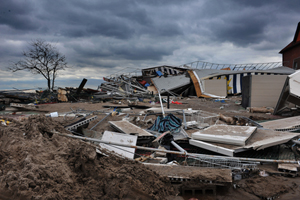
Another driver just totaled your car in an auto accident and clearly caused all the damages. But despite paying all of your premiums on time, your insurance company refuses to pay your claim. What should you do? What are your rights in a property damage dispute? Our property damage attorney Lakeland will explain your rights.
Property damage consists of damage to your property by an act of nature or by the intent or negligence of another. The insurance company looks at the cost of repairs or uses replacement value to determine the property’s worth. In addition, the insurance company might consider the cost for loss of use and provide you with a substitute, such as a vehicle while your car is repaired.
A Legal Definition of Property, Damage and Damages
Legally, property includes anything you own, whether tangible or not, including personal property and real estate. Property includes beneficial and legal ownership and might include your rights or interests, such as intellectual property. In some cases, a specialist needs to value the property.
“Damage” refers to the harm or loss suffered after an injury to property, person or reputation. “Damages” means the monetary compensation that you deserve for your loss. In other words, the responsible party or their insurance company needs to pay you for said losses.
Types of Property Damage
Property damage disputes might arise from any of the following:
- Acts of nature – wind, hurricane, storm, wind, flood, rain, lightening or water
- Fire
- Smoke
- Mildew or toxic mold
- Riot
- Theft or vandalism
- Aircraft
- Vehicle
- Termite
- Falling Objects
- Damage from HVAC
What’s Excluded in an Insurance Claim
While auto and homeowners’ policies cover many types of claims, certain types of damage are often excluded. A partial list follows:
- Earthquake damage
- Mudslide damage
- Sinkholes
- Nuclear disasters
- Sewer flooding
- Damage due to construction or zoning
- Intentional property damage
In some cases, the insured can purchase additional coverage to protect themselves.
What if the Insurance Company Refuses to Pay a Claim?
If you have made your policy payments and complied with the requirements to ensure coverage, you might wonder how an insurance company can avoid paying a valid claim. The answer is simple: the insurance company wants to save money and attempts to do so by delaying or denying your claim. The company might challenge certain parts of your claim in an effort to reduce the overall value and wear you out in the process. It might request unnecessary documentation or ask for information that you have already provided. The company hopes that you will tire of arguing and accept its offer, even if it is unfair to you.
As a victim, time is off the essence. Speak with an experienced Lakeland property damage lawyer immediately: call us to get clear strategic options and to pursue justice effectively.
Understanding Your Rights in Insurance Dispute Property Claims
Florida has specific laws that regulate the insurance industry in the state. Legislation covers collecting premiums, settling claims, statutes of limitations and related matters. Legally, insurance companies cannot do the following:
- Withhold payment of a claim in order to coerce you to settle another part of your claim. For example, the insurance company cannot refuse to pay the liability on your claim to bully you into accepting a collision settlement.
- Require unnecessary documents in order to stall your claim.
- Change your policy without telling you.
- Fail to provide a reason for claim delays or denials. The insurance company must provide you with reasons if it refuses to pay a claim. Generally, companies deny claims due to lapsed coverage for failing to pay premiums. In some cases, a denial might occur due to a miscommunication about the reasons for the claim.
- Delay claim processing. The insurer should advise you that it received the claim, and then it should process it quickly.
- Appeal a majority of court cases that favor the policyholder. While the company can appeal a ruling that it thinks is unjust, it cannot use the process to pressure you into accepting a reduced settlement.
- Deceive you about your policy. The insurance company must be straightforward about your policy coverage.
You can access these statutes online for additional information.
Property Damage Attorney Lakeland Discusses How to Handle Property Damage Disputes
In the event of a property damage dispute, you have several options:
- Involve your insurance agent – You likely have formed a relationship with him or her, and he or she can advocate on your behalf. In turn, your agent has also worked with the insurance company and knows how to cut through the red tape. Provide him or her with the same documentation that you have already given to the insurance company.
- Write a letter – If your agent can’t help, or if you don’t have one, write a letter to the appropriate person. Try to find out the name of the person who heads that particular department ahead of time. Be sure to include your contact information and phone number. Clearly state the problem, including the steps that you have already taken. Include copies of all relevant paperwork. Then suggest a fair solution or ask for his or her recommendations.
- Reach out to a third party – The Florida Office of Insurance Regulation oversees the insurance industry in the state with regulators who can look into your complaint. You can also contact the Better Business Bureau or the Florida Attorney General for information on consumer protection.
- Pursue arbitration or mediation – This might motivate your insurance company to settle out of court.
- File a complaint in small claims court – While this step will not work with claims above $5,000 in Florida, you can file a claim without the help of a lawyer.
- Contact an attorney
To ensure justice, remember: time is of the essence. Call our Lakeland personal injury law firm right now to speak directly with an attorney about how to hold the right people responsible and get the compensation you deserve.



